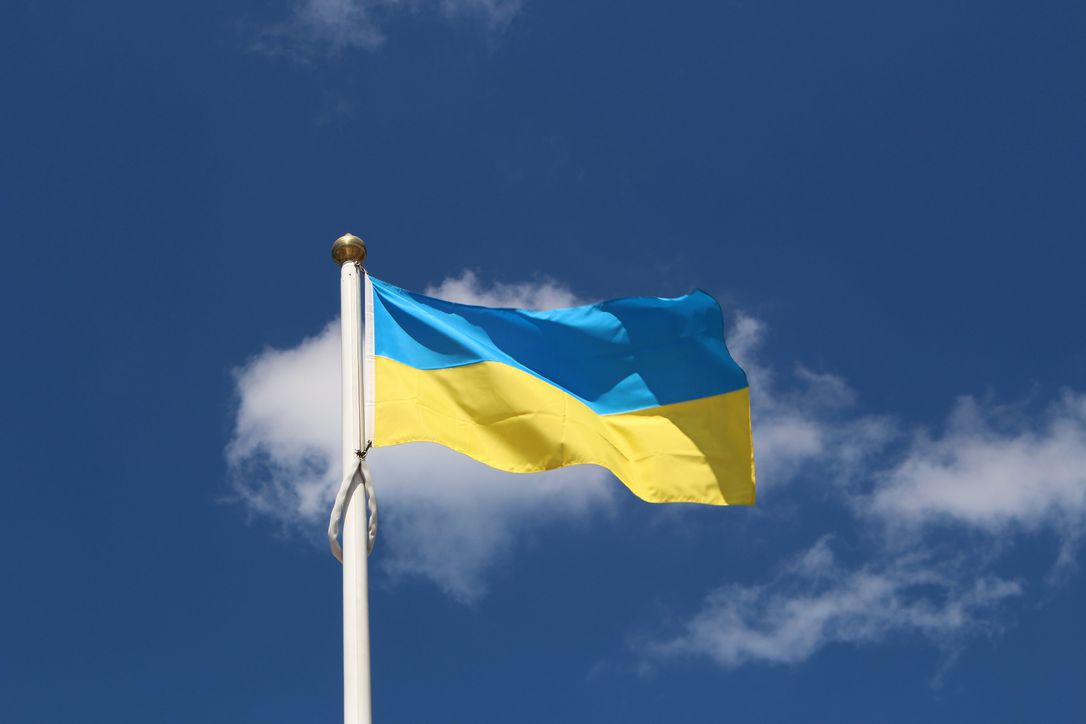Russia announced the annexation after holding what it labeled as “referendums” in areas it illegally occupied in Ukraine.
Qatar stressed the need to respect Ukraine’s territorial integrity on Monday following Russia’s announced annexation of 15% of the country.
In a statement, Qatar’s foreign ministry said that it was following “with great concern” the developments with regards to the ongoing “Russian-Ukrainian crisis”.
The Gulf state placed great emphasis on the “necessity of respecting Ukraine’s sovereignty and territorial integrity within its internationally recognised borders and pursuing dialogue as a way to resolve the crisis.”
It also renewed Qatar’s stance in supporting the UN Charter, which stipulates settling disputes peacefully, as per international law.
“The ministry reiterates the State of Qatar’s full readiness to contribute to any international and regional effort to find an immediate peaceful solution to this crisis and its keenness to keep channels of communication open with all concerned parties,” added the statement.
On Friday, Russian President Vladimir Putin announced Europe’s biggest annexation since the second World War, which saw Moscow annex the four Ukrainian regions of Donetsk, Luhansk, Kherson and Zaporizhzhia.
Since the beginning of the Russian invasion of Ukraine on 24 February this year, Qatar has held various phone calls with the leaders of both countries.
In March, Qatar’s Foreign Minister Sheikh Mohammed bin Abdulrahman Al-Thani travelled to Moscow where he met with his Russian counterpart Sergey Lavrov.
In a joint press conference with Lavrov at the time, the Qatari foreign minister condemned “everything to the contrary” of the UN Charter.
As of Monday, Russia has killed 6,114 civilians in Ukraine, including 35 children, per figures shared by the UN.
Global condemnation
Russia announced the controversial annexation after holding what it labeled as “referendums” in areas it illegally occupied in Ukraine, constituting a breach of international law.
The move was widely condemned, with the US imposing more sanctions on hundreds of Russians and companies, including 278 members of Moscow’s legislature.
“We will rally the international community to both denounce these moves and to hold Russia accountable,” said US President Joe Biden in a statement on Friday.
Other countries that announced fresh sanctions on Russia include the UK and Canada.
Turkey, a NATO member, also expressed its rejection of Russia’s move on Saturday, reiterating its support for a peaceful resolution to the ongoing war.
Turkey noted it did not recognise Russia’s annexation of Crimea in 2014 and will not be recognising the new annexed territories.
“We reiterate our support to the resolution of this war, the severity of which keeps growing, based on a just peace that will be reached through negotiations,” said Turkey’s foreign ministry.
Since the start of the invasion, Ankara has balanced its ties with Moscow and Kyiv while hosting rounds of dialogue in an effort to bring the war to an end.
Ukrainian President Volodymr Zelenskiy also said he applied to fast-track his country’s NATO membership, a move that Russia has opposed and perceived as a threat.
Nord Stream sabotage
In another development in light of the ongoing war between Russia and Ukraine, a leak was reported from the Nord Stream gas pipelines over the weekend.
The gas pipelines connect Russia to Europe, which has been seeking to abandon its reliance on Russian gas. A new pipeline was built between Norway and Poland in an effort to find alternative gas resources.
Europe received 40% of its gas supplies from Moscow prior to the invasion, with almost a third of the shipments passing through Ukraine.
Russia has pointed the blame towards Washington for the sabotage as President Biden said it “was a deliberate act of sabotage and now the Russians are pumping out disinformation and lies.”
With the cause of the leak remaining to be suspicious, major speculations point towards a premeditated attack on the pipelines, as Reuters reported on Friday.
“Something big caused those explosions which means … Russia could do it. In theory, the United States could also do it but I don’t really see the motivation there,” Oliver Alexander, an open source intelligence analyst, told the news agency.







